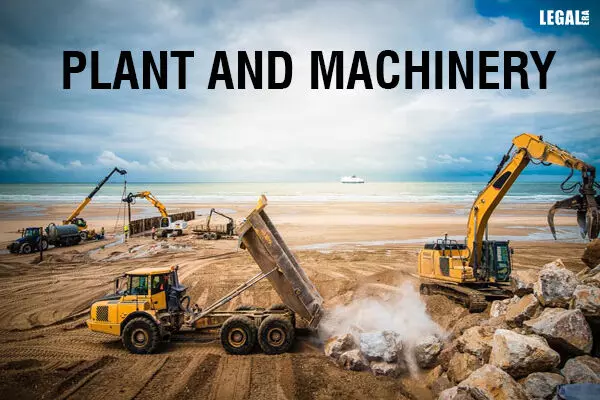- Home
- News
- Articles+
- Aerospace
- AI
- Agriculture
- Alternate Dispute Resolution
- Arbitration & Mediation
- Banking and Finance
- Bankruptcy
- Book Review
- Bribery & Corruption
- Commercial Litigation
- Competition Law
- Conference Reports
- Consumer Products
- Contract
- Corporate Governance
- Corporate Law
- Covid-19
- Cryptocurrency
- Cybersecurity
- Data Protection
- Defence
- Digital Economy
- E-commerce
- Employment Law
- Energy and Natural Resources
- Entertainment and Sports Law
- Environmental Law
- ESG
- FDI
- Food and Beverage
- Gaming
- Health Care
- IBC Diaries
- In Focus
- Inclusion & Diversity
- Insurance Law
- Intellectual Property
- International Law
- IP & Tech Era
- Know the Law
- Labour Laws
- Law & Policy and Regulation
- Litigation
- Litigation Funding
- Manufacturing
- Mergers & Acquisitions
- NFTs
- Privacy
- Private Equity
- Project Finance
- Real Estate
- Risk and Compliance
- Student Corner
- Take On Board
- Tax
- Technology Media and Telecom
- Tributes
- Viewpoint
- Zoom In
- Law Firms
- In-House
- Rankings
- E-Magazine
- Legal Era TV
- Events
- News
- Articles
- Aerospace
- AI
- Agriculture
- Alternate Dispute Resolution
- Arbitration & Mediation
- Banking and Finance
- Bankruptcy
- Book Review
- Bribery & Corruption
- Commercial Litigation
- Competition Law
- Conference Reports
- Consumer Products
- Contract
- Corporate Governance
- Corporate Law
- Covid-19
- Cryptocurrency
- Cybersecurity
- Data Protection
- Defence
- Digital Economy
- E-commerce
- Employment Law
- Energy and Natural Resources
- Entertainment and Sports Law
- Environmental Law
- ESG
- FDI
- Food and Beverage
- Gaming
- Health Care
- IBC Diaries
- In Focus
- Inclusion & Diversity
- Insurance Law
- Intellectual Property
- International Law
- IP & Tech Era
- Know the Law
- Labour Laws
- Law & Policy and Regulation
- Litigation
- Litigation Funding
- Manufacturing
- Mergers & Acquisitions
- NFTs
- Privacy
- Private Equity
- Project Finance
- Real Estate
- Risk and Compliance
- Student Corner
- Take On Board
- Tax
- Technology Media and Telecom
- Tributes
- Viewpoint
- Zoom In
- Law Firms
- In-House
- Rankings
- E-Magazine
- Legal Era TV
- Events
ITAT Permitted Claim of Depreciation on Fixed Assets as ‘Plant & Machinery’ for Promotion of Public Objects Without Commercial Motive

ITAT Permitted Claim of Depreciation on Fixed Assets as ‘Plant & Machinery’ for Promotion of Public Objects Without Commercial Motive
The Income Tax Appellate Tribunal (ITAT), Ahmedabad, by its coram comprising of T.R. Senthil Kumar (Judicial Member) and Waseem Ahmed (Accountant Member), held that an assessee is entitled to claim depreciation on the fixed assets as ‘plant and machinery,’ as the assessee in the instant case was engaged in promoting public objects which were activities in the nature of trade, commerce or business but without any commercial motive.
In the present case, the Commissioner of Income Tax (Appeals) [CIT(A)] had directed the Assessing Officer (AO) to apply the rate of depreciation based on normal commercial principles and not as per Section 32 of the Income Tax Act.
The Ld. Senior Counsel Shri S.N. Soparkar appearing for the assessee cited the decision of the Cuttack Bench in the case of Paradip Port Trust vs. Additional Commissioner of Income-tax wherein the Co-ordinate Bench of this Tribunal held that permanent way, wharves, roads and boundaries which were serving some special purpose of working of assessee port were to be treated as ‘plant and machinery’ and depreciation on the same was to be allowed at rate of 15% on those fixed assets.
The Ld. Counsel appearing for the Revenue could not bring any contra decision, thereby supported the order passed by the Ld. CIT(A).
Therefore, the bench held that the CIT(A) was incorrect in stating that the rates of depreciation under Section 32 of the Income Tax Act would not be applicable in the case of the assessee.
The bench after considering the available materials held that, the fixed assets served a special purpose in the working process of the assessee and should be considered as ‘plant and machinery.’
“Respectfully following the above judicial precedent, we hold that the assessee is entitled to claim the depreciation as ‘plant and machinery’ as the assessee in promoting public objects which are activities in the nature of trade, commerce or business but without commercial motive,” stated the ITAT.
The bench disagreed with the CIT(A)'s view that the income of an exempt person should be calculated based on normal commercial principles and accounting rules.
Further, in reference to the ground raised by the assessee that the application of income shall precede accumulation by directing A.O. to allow accumulation under Section 11(1)(a) of the Act, from income remaining after deducting amount applied for the objects of the assessee trust.
The ITAT while noting various decisions of the Coordinate Benches of the Tribunals, set aside the order passed by the Ld. CIT(A) and held that when application of income is more than receipts of year, excess application of income i.e., expenditure in the hands of the assessee can be carried forward to succeeding Year.
In the result, the appeal filed by the Assessee was partly allowed by the ITAT.


